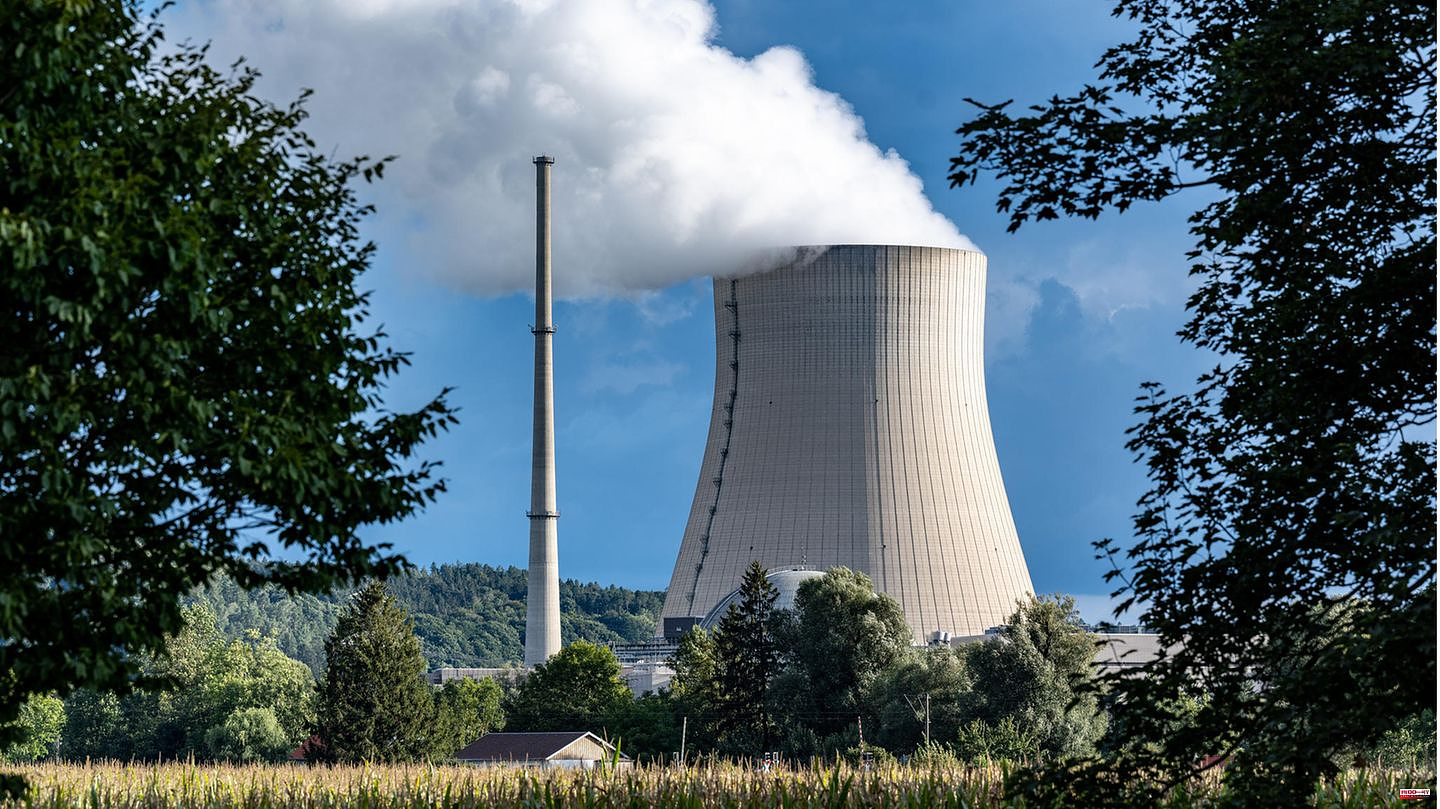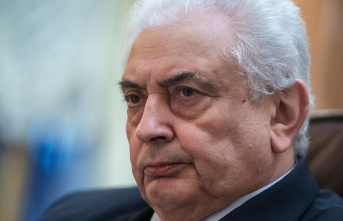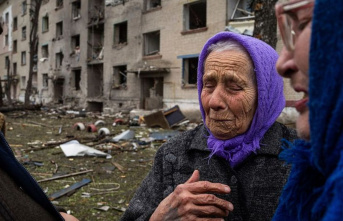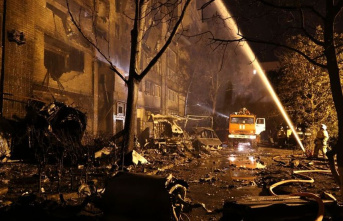Economics Minister Robert Habeck campaigned with his irritated Greens for the Chancellor's decision in the nuclear dispute. The Greens parliamentary group leadership wants to discuss how they will deal with the fact that Olaf Scholz (SPD) wants the three remaining nuclear power plants to be able to continue operating until mid-April 2023. Former Federal Environment Minister Jürgen Trittin criticized Scholz's decision, and the Green Youth reacted indignantly. "That's Basta politics, and we don't need it," said the co-head of the Green youth organization, Timon Dzienus, the DPA news agency. A debate in the Bundestag on the subject is necessary.
On Monday, Scholz had declared a day-long dispute within the traffic light coalition, especially between the Greens and the FDP, with a clear announcement to be over. The Chancellor instructed the responsible ministers to make legislative proposals so that the three nuclear power plants Isar 2, Neckarwestheim 2 and Emsland can continue to run beyond the end of the year until April 15, 2023 at the latest. Scholz made use of his guideline authority. Accordingly, the chancellor "determines the guidelines of politics and is responsible for them".
"The decision is technically not justified, it is not covered by the stress test, it is politically extremely questionable," said Trittin, a member of the Greens in the Bundestag, on ZDF. "I think it will be a very difficult operation."
In view of the discord, Habeck appealed to his party's sense of responsibility. Asked whether he thought it conceivable that the Greens group in the Bundestag could refuse to support Scholz's decision, Habeck said he didn't think that would happen. "Because the country, Europe, is in a serious crisis and putting the government at risk in this situation doesn't seem proportionate to me at all," he said on ARD.
At the same time, Habeck pointed out that the nuclear issue was a "highly charged political issue". "This question has shaped generations, has shaped German politics, and in that respect it's an exceptional situation." In the "muddled situation", Scholz has now made a suggestion "with which I can work, with which I can live," said Habeck. "We had to get out of it somehow," he added, referring to the dispute.
The chairmen of the Greens pointed out that the decision will fulfill one of the party's main concerns: that no new fuel rods will be procured and that ultimately all German nuclear power plants will go offline. However, the Emsland nuclear power plant is not necessary for grid stability, said co-chairman Ricarda Lang of the dpa. "Accordingly, we do not consider continued operation necessary." Co-boss Omid Nouripour made a similar statement on Twitter.
At a party conference over the weekend, the Greens decided to support so-called stretching operations for the Isar 2 and Neckarwestheim 2 kilns until mid-April 2023, as suggested by Habeck. The FDP had called for the third nuclear power plant in Emsland to be kept connected to the grid and for all three reactors to run until 2024. If necessary, nuclear power plants that have already been shut down should be reactivated.
Finance Minister Christian Lindner's party welcomed the Chancellor's decision - although it also fell short of their demands. The energy policy spokesman for the FDP parliamentary group, Michael Kruse, recorded the decision as support for his party. "The result of the negotiations shows that well-founded positions prevail." He also expects prices to fall as a result, because the signal is being sent that more electricity will be available.
Left faction leader Dietmar Bartsch dismissed Scholz's decision as "absurd smear theater". "This was neither about the citizens nor about the security of supply, but exclusively about the egos of Habeck and Lindner," Bartsch told the newspapers of the Funke media group (Tuesday).
Scholz also received criticism from the Union for his initiative. His decision was not a word of power, but a "sign of weakness," said the economic policy spokeswoman for the Union faction, Julia Klöckner. "Citizens and companies are waiting for real relief, which can only be achieved through more energy." CDU leader Friedrich Merz and Bavaria's Prime Minister Markus Söder (CSU) criticized Scholz's decision as insufficient and disappointing. "Is that all? What a disappointment," Söder wrote on Twitter on Monday evening. The problem is only adjourned. "This is a solution to the traffic light dispute, but not for the electricity problem in Germany," argued Söder and warned: "The danger of a blackout in the coming year remains."
Parts of the SPD are also critical of the decision. "The Emsland nuclear plant will not make any real contribution to solving the current challenges," said Lower Saxony's Environment Minister Olaf Lies (SPD) on Monday. The power plant is in his state; Lies is responsible for nuclear supervision and also for the topic of energy. The state government wants to create the necessary conditions for this. But: "It is crucial that April 15, 2023 is the latest final exit date and no new fuel rods are bought," emphasized Prime Minister Stephan Weil.
The energy industry, on the other hand, is pleased that Chancellor Olaf Scholz (SPD) has spoken in the coalition dispute about the continued operation of the three remaining German nuclear power plants. "It's good that the Chancellor has made a decision," said the chief executive of the Federal Association of Energy and Water Management (BDEW), Kerstin Andreae, the "Handelsblatt".
"The federal government should now put all its energy back into making the necessary quick decisions for a secure, affordable and climate-friendly energy supply in the short and long term," added Andreae, a former member of the Green Party. "Each additional renewable kilowatt-hour increases the amount of electricity available and can help lower prices and secure supply in the years to come."
The energy company RWE announced that it would quickly prepare for implementation after Scholz's decision. "We will now immediately make all the necessary preparations to enable the power operation of the Emsland power plant until April 15," said an RWE spokeswoman for the "Rheinische Post". Scholz made a "political decision" that "we can understand in the current energy crisis".
RWE is also affected by a further determination by Scholz: the chancellor had declared that the agreement between the federal government, the state of North Rhine-Westphalia and the energy company on bringing forward the phase-out of coal in NRW to 2030 should be enshrined in law. The company welcomes the fact that this political understanding "should be implemented in legislation," the spokeswoman said. Overall, Scholz's decision creates "clarity and planning security," she praised.












